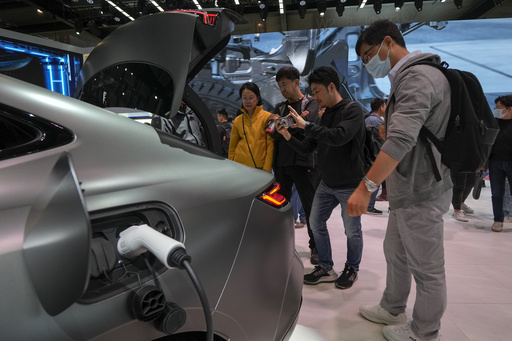China criticized Canada for imposing a 100% tariff on Chinese electric vehicles, aligning with U.S. tariffs on the same products. The Chinese Commerce Ministry expressed strong dissatisfaction, labeling the move as protectionism that violates World Trade Organization rules. China emphasized the impact on global industrial and supply chains and the strained economic relationship between the two countries.
Canada’s decision was influenced by U.S. national security adviser Jake Sullivan during a meeting with Prime Minister Justin Trudeau. This move was seen as protection of Canada’s industries against what they perceive as unfair advantages taken by countries like China. China’s Foreign Ministry advised Canada against politicizing economic and trade matters and highlighted the innovation and competitiveness of the Chinese electric vehicle industry.
Furthermore, Canada announced a 25% tariff on Chinese steel and aluminum. Notably, one of the Chinese electric vehicles affected by the tariffs is manufactured by Tesla in Shanghai; however, Tesla could avoid the tariff by redirecting supplies from its U.S. or German factories. Although Chinese brands have not made a significant impact in Canada yet, BYD, a Chinese EV company, has expressed intentions to enter the Canadian market.
Deputy Prime Minister Chrystia Freeland mentioned a forthcoming consultation period on potential tariffs regarding Chinese batteries, semiconductors, and other critical products. The Canadian government aims to address what they see as China’s deliberate oversupply strategy, particularly in the electric vehicle sector. China’s production of affordable EVs and other products is presented as driving the transition to a greener economy.
Both countries seem to be digging in their heels in their respective trade stances, with potential implications for the global supply chain and trade relationships.


